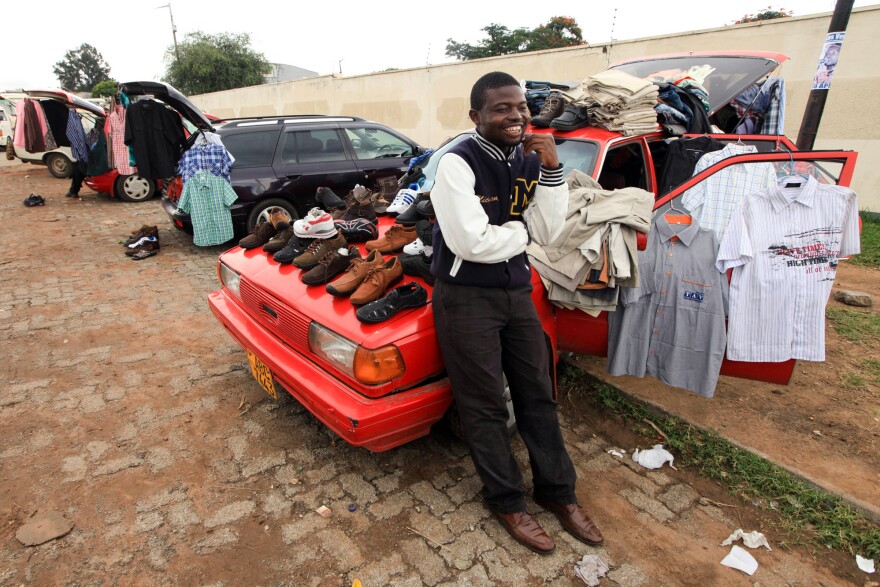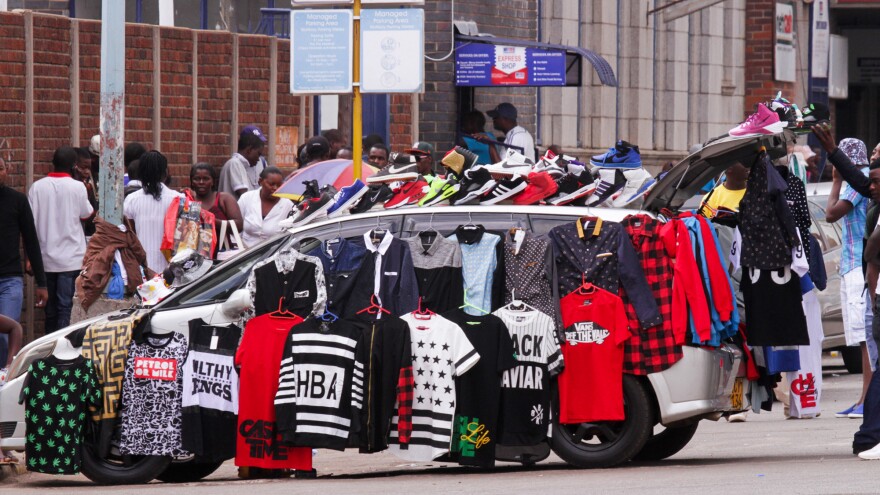"Where can I go now?" asks Temptation Tekera.
He is one of an estimated 20,000 street vendors in Harare, the capital city of Zimbabwe.
The vendors sell everything from sweet potatoes to new and used footwear to pirated CDs. Goods splay across the sidewalks, making it a minefield for pedestrians in a hurry.
Now the government wants the vendors to pack up their wares and register and pay rent for one of 6,000 places in designated zones. The deadline is June 26. The goal is to restore order to the once sedate city.
"We cannot afford to have a nation of vendors," says Minister Sithembiso Nyoni. "So no site unless it is designated by local authorities."
The traders aren't happy about that. They say they're not selling on the street by choice, but because they must make ends meet in a tough economic environment.
"That's where we get food, that's where we get rent. That's where to get everything," says Tekera, who sells an assortment of plastic toys. "I don't have any direction to go. Give us jobs and we will work."
There are no jobs in Zimbabwe, says Tobias Tsava, another trader. He fears that if he's evicted from the streets, his livelihood will be at risk.
"We are all worried," Tsava says. "Most of us are qualified. We have got degrees, diplomas, we are drivers, mechanics, but no jobs. Industry has collapsed."
Indeed, joblessness is a perennial problem in many parts of Zimbabwe, once the prosperous food basket of southern Africa. After the hyperinflation of 2007-2008 and the subsequent economic collapse under President Robert Mugabe, the economy remains shaky.
Hundreds of street traders, wearing yellow reflective jackets, gathered for a noisy meeting recently in a church hall in Harare.
"We have attended this meeting in solidarity with the vendors," says Charity Mandishona, who's with the Zimbabwe Chamber of Informal Economy Associations. "The government should not chase them out of the streets. They should first of all find an alternative — then they can take them off the streets. The government promised, during the last elections, that they are going to create 2 million jobs. Up to now, there are no jobs."

"Even if [people] want to rent shops, rents are too high, they can't afford, so better they sell in the streets," says Gaudentia Makahamadze, a widow who sells knitting wool. "I don't think there's anything bad about selling in the streets. I have got two children to look after. I'm paying school fees. I'm getting the money from the street. They must have mercy for us."
Initially, Zimbabwe's government warned vendors they would be moved by force. Then the defense minister announced he would not deploy soldiers on the streets. Nonetheless, Minister Sithembiso Nyoni says those who do not have the required papers to sell in designated vending areas will be stopped.
"So, after the cutoff date, anyone who has no card, no number, no site to go to, will not be allowed to trade anywhere," says Nyoni.
She adds that the vendors must themselves clean up the city before they ship out.
Charity Makinga, a customer, sympathizes with the street traders: "Life is too tough in Zimbabwe. Life is too tough."
Copyright 2021 NPR. To see more, visit https://www.npr.org.




